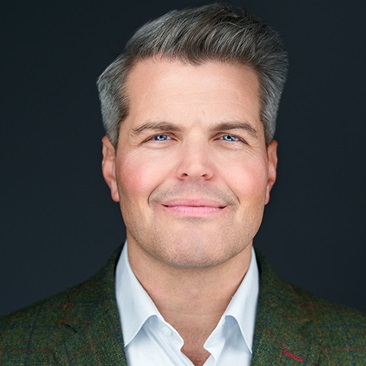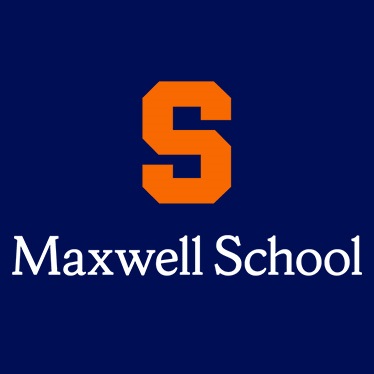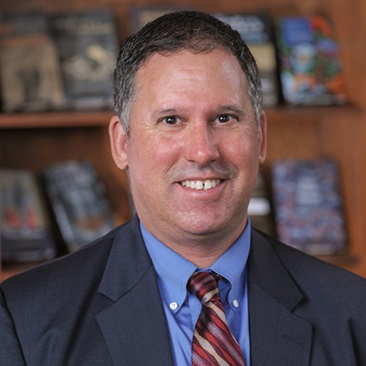David Bennett Knows America
June 21, 2020
Probably no one knows American history like David H. Bennett. He’s been teaching it at Maxwell for more than 50 years. Though retired, he will teach his recent-history course one last time this fall. . . . Because David Bennett sees history being made before our very eyes.
In 1969, eight years into his career as a Maxwell School history professor, David H. Bennett began teaching two back-to-back survey courses which, together, covered American history from roughly 1900 to the present.
The first class drew 50 students. Then word got around. The courses, though not required by any major, began to attract students from across the University, and Bennett’s two-semester sequence was moved to Maxwell Auditorium.
“For several decades, those classes filled the auditorium, and oftentimes I had students sitting on the steps,” Bennett recalls.
For half a century, it was a near-constant of life at Maxwell that, at 11:30 every Tuesday and Thursday morning, Bennett stood in “Max Aud” before an audience of 200 or so undergraduates and taught History 307/308, as the two courses are catalogued. He attempted to make sense of the American Century—and as time went on, the two decades that followed. Retired since 2013, Bennett nonetheless has continued to alternate teaching History 308 (Modern History, 1960 to the Present) and a military history course (The World at War) each fall.

He’ll do so once more. This fall Bennett will teach HST 308 for the last time. He’s doing so partly to close out his career with 60 full years of teaching. But he’s doing it also because this time the content will coincide with the November 2020 election, which, at 85, he views as the most significant political election of his lifetime.
“In my judgment, it’s likely to be seen as the most important election in American history since 1860 and 1864,” he says. In 1860 Republican Abraham Lincoln defeated Democrat John C. Breckinridge, triggering the Civil War; and in 1864 Lincoln won a close reelection effort, which saved the Union.
As Bennett sees it there’s partisanship in every election. And with every election, there are people who believe it to be the most important in history. But this one, he believes, is actually different. And that’s because of Donald J. Trump.
As an historian and astute observer of the presidency throughout American history, David Bennett views President Trump as a product of recent trends.
But he also sees Trump as an American leader who has handled his role in a way no American president, conservative or liberal, ever has—attacking the free press, attempting to redefine the judiciary, dismantling the norms of global trade, and seemingly inviting foreign nations to interfere in American elections. “He’s an outlier,” says Bennett.
Despite that, Bennett believes Trump is popular with most Republicans because of his economic policies, which track with long-held party views on free markets.
A little refresher from Bennett’s classroom: The Industrial Revolution of the 19th century created an enormous gap between the rich and the rest of society, setting the stage for the Progressive Era, in the early 20th century. It was a period of widespread social activism and political reform, during which progressives pursued an adjustment of capitalism to better fit democracy. In its wake came the Great Depression and conditions under which Franklin D. Roosevelt launched the New Deal—an entirely new vision of the government’s responsibility to its population. Many conservatives felt Roosevelt had gone too far, but FDR’s program proved so effective that no Republican challenged it in the post-war period. Lyndon Johnson’s Great Society brought a radical expansion of FDR’s progressive vision, and, even until today, that vision has held.
But not without a fight. The economic collapse of the 1970s (along with the social upheavals of the 1960s) fueled the Reagan revolution and a return—for the first real time since the 1920s, Bennett says—to deep-dyed conservatism. “That’s where getting the government off our backs and out of our pockets came from,” says Bennett.
Trump, though considered by many not a true conservative, promotes economic policies consistent with traditional Republican goals—to deregulate industry, downsize government, and cut taxes, with the intended effect of stimulating jobs and the economy.
“The Republican view is that the United States is a country where the individualist ethos must be dominant and you can’t have an umbilical cord supporting large numbers of Americans,” says Bennett. “This has been a dominant theme for large numbers of conservative Americans across modern American history. It’s the set-up for political debates among equally intelligent liberals and conservatives from the Progressive Era up through the Reagan Revolution and beyond.”
Trump represents a second ongoing trend: increasing partisanship and the fouling of public discourse. While there’s always been partisanship and polarization, Bennett traces the current state of affairs to Newt Gingrich’s stint as head of the Republican caucus and speaker of the House in the 1990s. “His argument was that politics is not just a debate about issues, but a moral struggle,” Bennett says. “He characterized the enemy camp as evil, arguing you can’t compromise with evil people.”
This, Bennett says, was the beginning of efforts to purge the Republican Party of moderates. He sees parallels within the Democratic Party, where increasing numbers—particularly on the left—believe you can no longer achieve compromise with Republicans.
Those who appreciate the dynamics of American government, Bennett says, should view this as a dangerous trend. “Compromise is essential,” he says. “Given the nature of the Constitution, we can’t run government in the United States without it.”
Viewing the opposing party as the enemy has led us to Donald Trump, Bennett maintains. In ways no one anticipated when he took office, Trump fully captured the Republican Party by adopting the attitude of the politically righteous and demonizing any opposition.
In the process, he is changing the way many view a presidential administration. The “Partisan-in-Chief,” while championing his party’s views with little (or no) permissible dissent, is also attempting to reshape the very office from which he speaks. This, says Bennett, creates a tension that, among voters, proves complicated. Even those who favor Trump’s traditional Republican policies sometimes blanch at his approach to executive power.
While the Constitution was built with many checks and balances, Bennett says Trump has attempted to use executive power in ways that no executive before ever thought to do. “With the complicity of GOP senators and house members, many intimidated by his popularity, with a Republican base responding to Trump’s nativist and populist rhetoric, he was able to stonewall Congress about the impeachment inquiry. He’s had federal judges slow-walk the Democrats in Congressional lawsuits,” Bennett says. “Nothing has been done to check his power.”
And ultimately, that’s what makes this election so important—at least in the eyes of an historian who has watched the pendulums swing for eight decades, and who understands the tensions built into the American system. If you favor Trump’s policies, are you also comfortable with his approach to executive power?
“There are many who believe that Donald Trump is a clear and present danger to both political conservatism and to Democratic institutions in the United States,” says Bennett. “That’s not just academics and journalists and liberals, but among conservatives themselves. There’s widespread fear that if there’s four more years of Donald J. Trump in the White House, we might not recognize the America we all grew up in.”
David Bennett’s goal, he says, was never to compel students to remember facts, but to have them emerge engrossed by the long and dramatic narrative of the past.
“For students who are interested in finding out how America got to be and how their own lives are informed by the recent past,” he says, “this is a very useful course,” says Bennett, who himself earned a BA in American studies from Maxwell, in 1956. “I want them to become interested enough in history to keep following it.”
His teaching prowess helps. Bennett has been awarded virtually every honor the University gives for teaching, including Scholar-Teacher of the Year (1987-88), Outstanding Undergraduate Teacher in the College of Arts and Sciences (1988-89), and Alumni Teacher of the Year (1992-93). In 2001 he was named Laura J. and L. Douglas Meredith Professor for Teaching Excellence.
Although “active learning” is prevalent in academia, Bennett never strayed from the lecture format, saying he was inspired to become a professor by listening to great teachers as an undergrad at Syracuse and pursuing his doctorate at the University of Chicago.
As chair of Maxwell’s history department, Bennett sat in on other professor’s classes, not to “judge” them, but to study their craft. For years, he ran a seminar for faculty and graduate students on the art and craft of lecturing, inviting some of the most gifted teachers on campus to join. He concedes it is more difficult for today’s technology-driven, multi-tasking students to pay attention to an 80-minute lecture.
Bennett says an interesting thing about teaching American history is how, over time, changing attitudes have altered popular perception of events, ranging from the cause of the Cold War and our involvement in Vietnam to who shot JFK. “There’s an ever-changing literature on some of the main outlines of various debates,” he says. Rather than take a stand, Bennett lays out the “history biography” of each major question the class covers, to give a textured, integrated view of historical debate.
The course has been altered by history in the making, beginning in 1970, with the student strikes protesting the U.S. involvement in the Vietnam War. Similarly altering were the bombing of Pan Am Flight 103, the 9/11 terrorist attacks, and the recession of 2008. “These were all times in which the material we dealt with in the modern history course was particularly relevant to students’ lives,” says Bennett. “I believe this will be true this fall as well—not just with the election, but as we’re living with the pandemic and its aftereffects.”
Despite the large size of his classes, Bennett has made lasting connections with countless students through the years. “They’ve always made use of my office hours and liked to come and debate issues,” he says.
“It’s not boring to teach the same course again and again, because this course is about how the very world we live in has been shaped,” he says. “It’s been a privilege.”
Bennett’s own scholarship has been prolific. His specialties include modern military history and political extremism in America. Books in the latter category include Demagogues in the Depression (Rutgers University Press, 1969), and The Party of Fear: From Nativist Movements to the New Right in American History (University of North Carolina Press, 1988), which won the Myers Prize for scholarship on the subject of intolerance in the United States. His most recent work is Bill Clinton: Building a Bridge to a New Millenium (Routledge, 2014). In 1991, Bennett was awarded a Syracuse University Chancellor’s Citation for Exceptional Academic Achievement.
As a scholar of far-right nativism, Bennett says that Trump, while unique in American democracy, reflects a rise in populism around the world. “There was a belief that democracy would be dominant in the world after the end of the Cold War,” he says. “That belief is now at risk.”
Bennett says the 2020 election is part of a larger set of threats and prospects. “The American high after World War II, where people felt enormous personal opportunity, is over,” he says. “In today’s industrialized world, technological change has replaced industrial workers across the globe with robots. Even the need for various professionals has decreased because of technology and artificial intelligence.” It’s uncertain if new technology is going to produce advancements for everyone or simply create an enormously less equitable society. Combined with global warming and nuclear proliferation, dystopian fears are very real.
“That’s why we see a rise in demagogic populists around the world offering to protect their population,” he concludes. Trump is understood by his supporters in that light. Those who vote for him are often choosing protection. In an increasingly unstable world, it’s not difficult to understand that choice.
This fall, voters will face a cluster of overlapping decisions: free-market individualism versus socialized economics, self-protection versus global cooperation, a strong executive or a re-empowered Congress, battle-line politics or across-the-aisle dialogue.
But Bennett believes the election will come down to the coronavirus pandemic and ensuing recession and unemployment figures.
“This president will almost certainly engage in a massive bailout for big businesses, which are going to be damaged terribly by a huge recession—banks, the cruise and airline industries,” Bennett says. “But the big question will be what is done for individuals, isolated in their homes without paychecks. After an initial bailout, will we return to a disdain for government intervention? Or will there be some sort of reset?”
While the pandemic provides an opportunity for the parties to set partisanship aside and work together, that hasn’t really happened, he says. “Typically, in times of crisis, a leader will try to inspire the entire citizenry, but Trump hasn’t done that,” says Bennett.
The election is a wild card, he says. “There may be a clear referendum on Trump’s leadership or it could be very close. Nobody knows what’s going to happen.”
To Bennett, that’s history in the making.
By Renée Gearhart Levy
Related News
School News

Apr 2, 2025
Commentary

Apr 1, 2025
Research

Mar 25, 2025
